- Industries facing potential destructive Coronavirus (COVID-19) impact
- 1. Manufacturing & Logistics
- 2. Travel & Tourism
- 3. Entertainment & Media
- 4. Healthcare
- 5. Commerce
- 6. Government
- 7. Finance
- 8. Real Estate
- 9. Telecommunication & Technology
- 10. On-demand
- 11. Education
- What investors say about the coronavirus impact on different industries?
- Is technology adoption the road to recovery?
- 1. Artificial intelligence
- 2. Mobile Payments
- 3. AR/VR
- 4. Blockchain
- 5. Cloud Computing
- 6. Geofencing
- Conclusion
“Coronavirus hit 6.8 Mn lives with death tolls 397,000 globally.”
“United States’s coronavirus deaths surpass 127,000.”
“India’s coronavirus lockdown leaves dozens people stranded and hungry.”
In the past few months, such headlines have become the first thing we interact with. We have been separated from our friends and workplaces and caged at our own apartments across 199 countries and territories; hopelessly waiting for the day to walk on the streets or enter public spaces.
But, what’s worse is that Coronavirus is not only instilling fear of the ‘End of the World’ in our minds, it is also bringing a major impact on different industries and crashing the global economy. A clarity of which you will get by the time you reach the end of this article.
Here, in this article, we will look into what challenges business leaders are facing in the current scenario, what is the probable future, and what are the implications for different industries and sectors in the short and long term.
In a hurry? Jump directly to –
- Industries facing potential destructive Coronavirus (COVID-19) impact
- What investors say about the impact of coronavirus on different industries?
- Is technology adoption the road to recovery?
Industries facing potential destructive Coronavirus (COVID-19) impact
1. Manufacturing & Logistics
The foremost industry that is withering away because of coronavirus (COVID-19) is Manufacturing and logistics. Even though mobile solutions have played a huge role in empowering the manufacturing industries, the virus outbreak has slowed down the industry performance.
As per the market experts, 1 out of 5 top manufacturing companies rely on the China market for supply of goods and materials required for production. With China factories still not operating and traveling facilities banned across the globe, the manufacturing industry is facing the situation parallel to that of the 2008 recession. And since this pandemic has hit almost all the countries, finding alternative routes has also become nearly an impossible task. Something that is highlighting that the coronavirus effect on the manufacturing industry is dreadful.
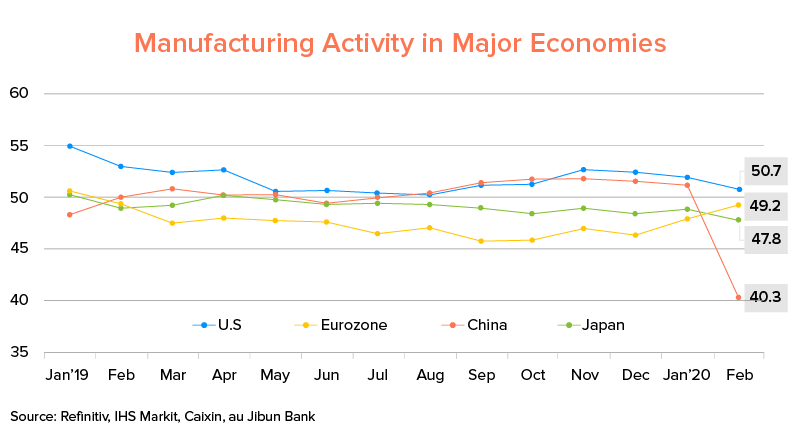
It has also been taken into account that people, because of social distancing and sickness, are finding it hard to load and unload materials in real-time. This is again adding to the impact of Coronavirus on the manufacturing sector.
Apart from this, it has been noted that consumers are becoming more cautious about purchasing non-essential items due to the fear of virus exposure.
In fact, it has been reported that if Boeing fails to survive because of poor supply chain facilities, Bombardier and all the suppliers will also go down. That implies, it’s not solely one company, but the complete ecosystem and regulated parts will get distressed as an impact of COVID-19.
Also, as per the latest survey by CNBC Global CFO Council, around 40% of the companies that are already suffering from or expecting supply chain management issues will take around 3-6 months to get their business back on track.
2. Travel & Tourism
Travel and tourism, the one responsible for 10% of the world’s GDP and jobs, is yet another sector seeing the worst of coronavirus effects on industries (and is on the brink of collapse).
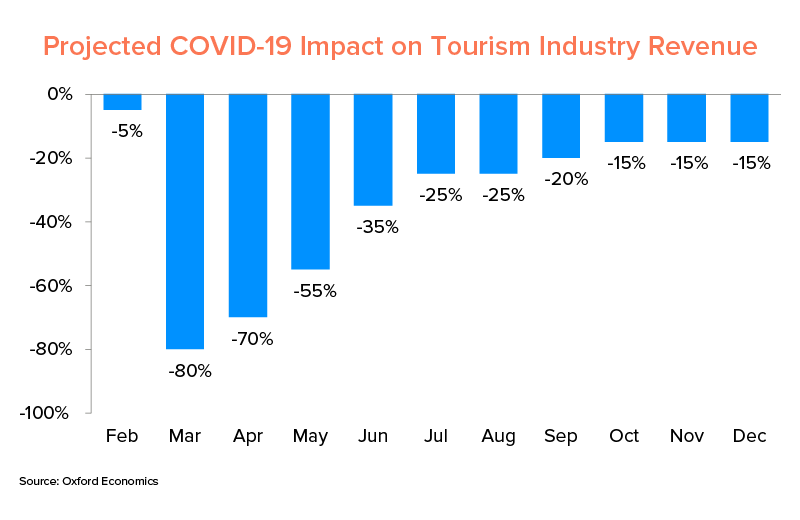
The industry is facing around 6 times the losses counted during the 9/11 attack because of numerous reasons, such as:-
- Boundaries have been closed.
- Both national and international flights have been grounded. A dire situation that the aviation industry is trying to recover from with AI.
- Insurance companies have been suspending travel cover for new customers.
- Cruises such as Ruby Princess, Celebrity Solstice, Costa Magica, and MS Braemar have been moored off.
- Tourism destinations are avoided by people to prevent contagion’s spread.
- Around 100,000 visitors have canceled flights because of the drop of 12 high-profile tech conferences and large-scale events such as the Mobile World Congress (MWC), the Geneva Motor Show, the ITB Berlin, and Facebook’s F8 conference.
- Business trips have been canceled or postponed to prevent exposing people to unknown risks.
The downturn in the demand for travel will compel millions of workers to lose their jobs or cut their working hours. Especially those doing lower paid service jobs like housekeeping and that of waiter/waitress.

In fact, as per the World Travel and Tourism Council (WTTC), three months of global travel losses in 2020 will result in job reduction between 12% and 14%.
3. Entertainment & Media
Entertainment is one of the industries that has been/not affected by Coronavirus spread across nations.
If focusing on the negative side, Stakeholders such as vendors, entertainers, venue operators, sponsors, broadcasters, and consumers have been regulating various legal issues such as contracts, insurance, sales, health and safety, and operations.
Various Bollywood and Hollywood movies have already witnessed a stagnation at the box office since cinema halls were shutted down. Many high-profile movies like ‘No Time to Die’ and ‘Peter Rabbit 2’ have been canceled or rescheduled to newer releasing dates between April to November. Whereas, many theater shows, live performances, and local media publications have been halted because of this zombie apocalypse.
Likewise, hundreds of shows like Apple’s ‘The Morning Show and Little America’ have delayed or suspended production. Disneyland Park and Disneyland California Adventure Park in Anaheim, California have also ceased its operation. And, many entertainment festivals and award shows like ‘2020 GLAAD Media Awards’ have faced cancellations or postponements.
Whereas, when looking at the flip side of the coin, Coronavirus is uplifting the Online streaming market. People are spending more time binge watching on On-demand streaming apps like Netflix, Amazon Prime, Disney+, and Hulu to enjoy their quarantine time. They are expanding their choice horizon and watching different content types; improving the app acquisition and retention rates.
In fact, it has been recorded that 95% of users are spending more time on in-home media consumption, aka, these online streaming service providing apps.
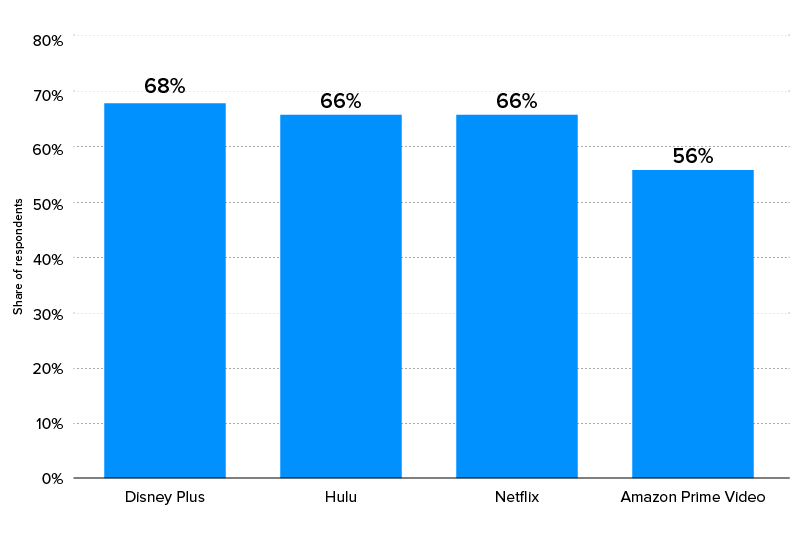
4. Healthcare
Pharmaceutical and healthcare is also one of the sectors that has been feeling the effects of Coronavirus on industries.
When talking about the impact of coronavirus on the healthcare industry,the organizations are struggling to provide the right treatment and assistance to all the patients. Especially when they have only one-third of the number of beds required at the hospitals. They are facing the shortage of protective gear and supplies because of supply chain issues.
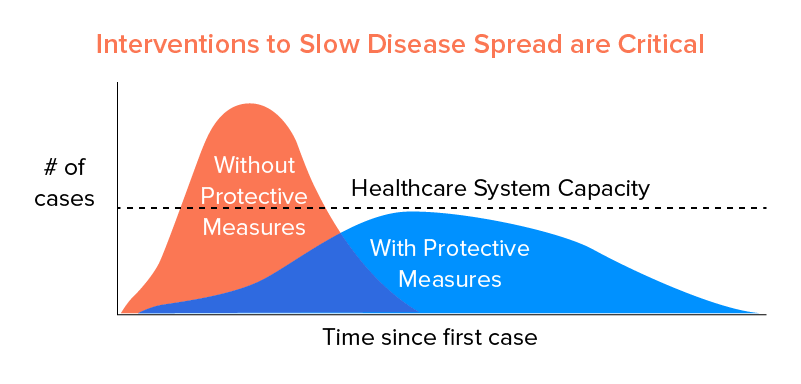
The surgeons and medical practitioners are doing odd shifts, reusing their masks and other safety gear and cancelling masses of surgeries and procedures that can be performed later to bring the situation under control. However, this is again causing long prolonged issues for those having cancer, diabetes or need dialysis.
The individuals, irrespective of what job role they had in the hospital earlier, are trying to contribute to prioritizing and handling COVID-19 cases. In addition to this, the outbreak is widening the gap between rich and poor people. While rich people are easily getting access to healthcare facilities, those relying upon daily wages are struggling to stock up food and medicines too.
However, if looking at the positive side of the coronavirus impact on the healthcare industry, the outbreak has encouraged individuals to embrace mobile health app development solutions like telemedicine, telehealth and virtual doctor consultation apps. An evidence of which is that Amwell, a telemedicine provider, noted a 257% hike in its usage across the USA region and 700% in Washington State during this pandemic period.
5. Commerce
The inexorable coronavirus impact on the industry of commerce has landed with a remarkable blow.
With the proposed idea of quarantine during the coronavirus period, 80% of people are avoiding shopping from brick-and-mortar stores and malls. They are controlling their appetite for non-essential items, while focusing on purchasing essential things abnormally. Another 65% of shoppers are showing concern about the product origins. Also, it has been found that people are working in odd shifts to prevent formation of larger groups in the stores and avoiding the need to ‘meet up’ with a salesperson personally.
This altogether has resulted in decline in the early March total retail traffic by 9.1% – with 3.9% and 14.7% of decrease in apparel and luxury retail traffic, respectively.
On the contrary, a steep rise in the usage of e-commerce portals and smartphone retail apps for online shopping across countries.

However, this is a hidden challenge.
With the changing situation, customer expectations have also taken a dramatic shift. Consumers have become more selective and demanding about quick, effective and personalized experiences.

6. Government
The impact of novel coronavirus on the government sector is found to be quite astonishing.
This virus outbreak has resulted in the suspension of tours and in-person meetings in the White House, the U.S. Capitol, the Pentagon and other legislatures worldwide.
To protect the health of my staff and to prevent the spread of the Wuhan virus, my Washington, D.C. office is temporarily closed. My full statement here: https://t.co/mIF7i4volb
— Tom Cotton (@SenTomCotton) March 12, 2020
It has made it difficult for governments to aware millions of users about the risk associated with this contagious virus, prevent intake of misinformation and prepare themselves during outbreak at the earliest. And that too while addressing various existing issues like lack of proper medical facilities, financial instability among daily-wage laborers, absence of required infrastructure, etc.
While on the flip side, it has laid down the foundation for a stronger and civic federalism where parties at national, state, and local levels come together to address issues and deliver better services as one entity. The coronavirus disease 2019 has brought forth required policies and regulations such as declines in tax revenues for students. Something that has been reviving trust in these institutions.
7. Finance
The Coronavirus (COVID-19) pandemic outbreak is also having sweeping effects on the Finance industry.
When focusing entirely on the negative impacts of coronavirus on fintech, both private and public sector banks have reduced their opening hours and are serving only a limited number of customers at a time because of social distancing rules. They are encouraging customers to opt for alternative channels like telephonic consultation, online banking, and social media.
We’ve now made it quick and easy to contact us online about getting a payment holiday if you have a mortgage with us. Click below to get started.
We appreciate you’ve had extremely long waits to speak to us. Thank you for your patience as our team have worked to help everyone.
— NatWest (@NatWest_Help) March 20, 2020
At the same time, consumers are getting panicked and contacting banks with queries, concerns, and requests related to special measures so that their finances does not get highly affected by the fallout from COVID-19. And this rate is escalating with an increase in unemployment and bank balances turning to zero.
SME and commercial banks are experiencing a reduction in demand and delays in tax payments from consumers, making them fearful about bankruptcy. Stock market is dropping day by day primarily because of the absence of cross-border transactions.
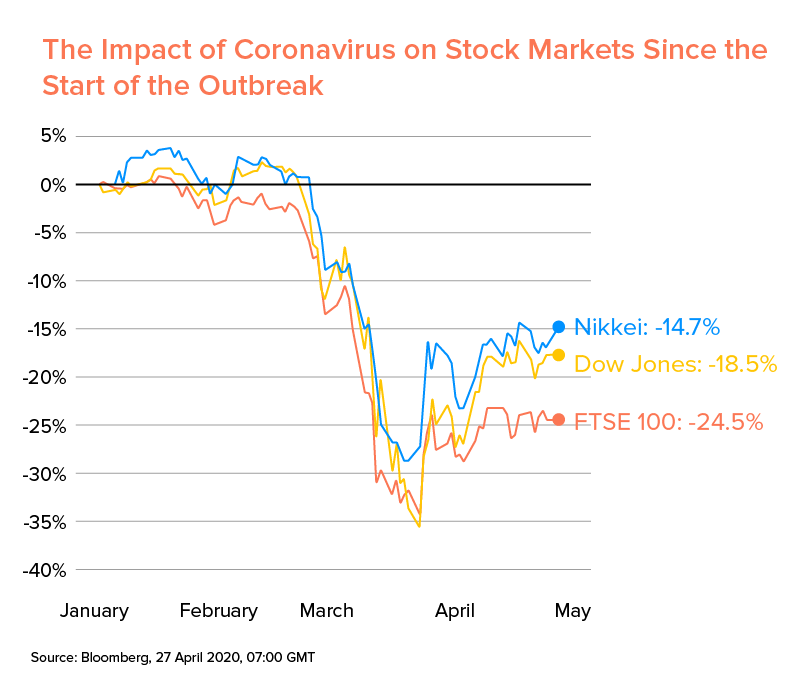
Part of mortgage booking is impacted. A reduction in spend on cards, personal, and auto loans has also come into limelight with customers looking ahead to save some finances for the future. This is making various associated branches turning to be a useless investment.
Whereas, when concentrating on the positive impact of coronavirus on industry of fintech, this global pandemic period is giving a significant boost to the fintech domain. People are embracing the idea of contactless payments, digital banking facilities, and discussing investment online. A group of fintech organizations are coming together to lend a helping hand to SMEs during this economic crisis period.
A clear evidence of which is that the digital mortgage software provider Blend, the one with 230 bank clients, saw a 85% to 95% increase in its usage since March 4. The platform is currently processing a loan of worth $8 billion and handling 15,000 to 20,000 applications on a daily basis.
8. Real Estate
Another industry that has been clobbered by Coronavirus disease 2019 is Real Estate. The increasing quarantines, curfews, and employee layoffs has been interrupting the supplies and affecting the consumer spending level across different segments.
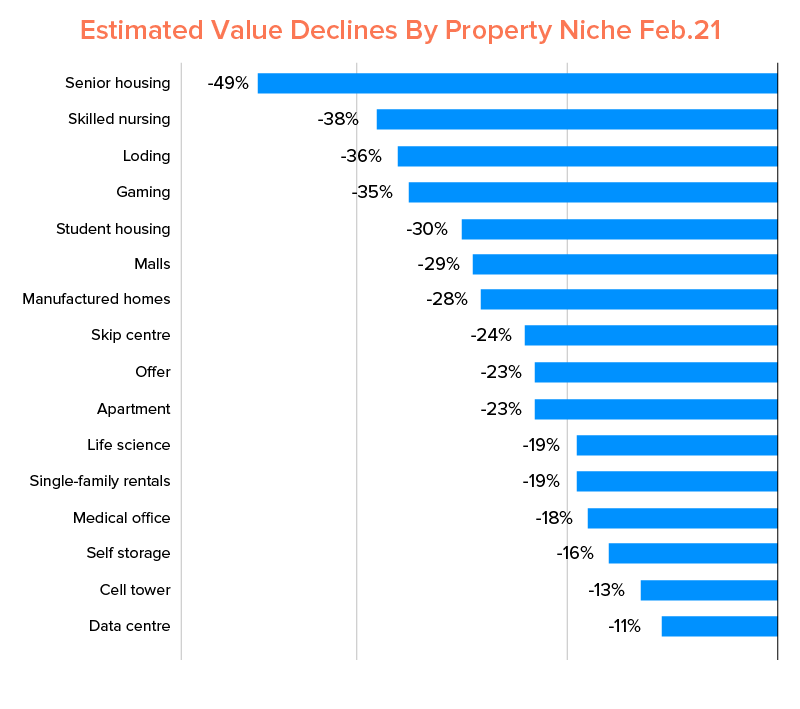
For example, builders are observing tremendously lower traffic through their sales centers, a few of which could be solely due to short-term social distancing. They are also noticing a reduction in demand of home property because of buyer feelings of economic insecurity. Besides, they are fearing of issues associated with non-conforming mortage loans.
The reputed title companies are locking their doors. While users are still visiting them for required signings, realtors or lenders are staying connected by calls and other mediums only.
Besides, home buyers are acting as per the stock market scenario, changing the idea of seeing/purchasing open houses, and preventing down payments if available in cash.
Another thing that has been noticed in terms of the effects of coronavirus on industry of real estate management is the growing delay of escrows/listings, loans, and appraisals due to the increasing number of sick people.
This, as a whole, is expected to push the economy towards recession, even though new-gen technologies are doing their best to keep the real estate sector afloat.
However, not every segment of the real estate market is forecasted to face the stage of cease. Home repairing tasks like plumbing, electrical services, and roofing will stay essentially important, and agents offering these services will continue to get better job opportunities even during this pandemic period.
9. Telecommunication & Technology
More than 50% of the global technology companies export materials from China. Because of partial or full shutdowns of plants due to coronavirus, the tech economy is also getting slower down.. In fact, around 12% and 16% of decline in the production of smartphones and laptops have been observed since the coronavirus outbreak. Various financial issues have also been signified because of cancellation of tech conferences like MWC.
Besides, it has been feared that the impact of coronavirus on the software industry will be horrible, especially for startups.
However, this is just one side of the coin.
The growing period of COVID-19 has made companies prepared for working remotely. This has brought the extensive potential and use cases of top technologies like 5G, AR, VR, and AI into the limelight. A ripple effect of which is that around 49% of business respondents are looking ahead to explore and invest in VR app development to mirror real-world training conditions.
10. On-demand
On-demand is one such domain that is proving to be aiding in Coronavirus fight. The business sector, with an opportunity to get things delivered to your doors without stepping out of your bed in minimum time, effort, and cost, is experiencing some ups and downs.
On one side, people are resisting on-demand food delivery services knowing that the fact that this virus has evolved from food. They are preferring cooking food at home-cooked meals from different restaurants and hotels; bringing an adverse impact on their economic situation. They are being in two minds to on-demand water delivery services fearing the higher risk of contamination. Something that is being kept into consideration by businesses as they prepare on-demand businesses for post-COVID world.
Consumers are scared of riding through a bike, auto or a cab with the fear of getting infected from the drivers; bringing a sudden decline in the On-demand ride sharing services. And drivers are not accepting to-and-fro rides to crowded areas like airports, bus stations, malls, and railway stations.
Additionally, the on-demand courier and parcel services market is also seeing a major Coronavirus impact with people not ready to send/receive parcels to prevent the risk of virus transmission from courier staff, if infected.
While on the other side, consumers are ordering everyday items from On-demand grocery apps like Instacart at an accelerating rate. In fact, it has been reported that a 218% rise is experienced in Instacart app downloads compared to that last month.
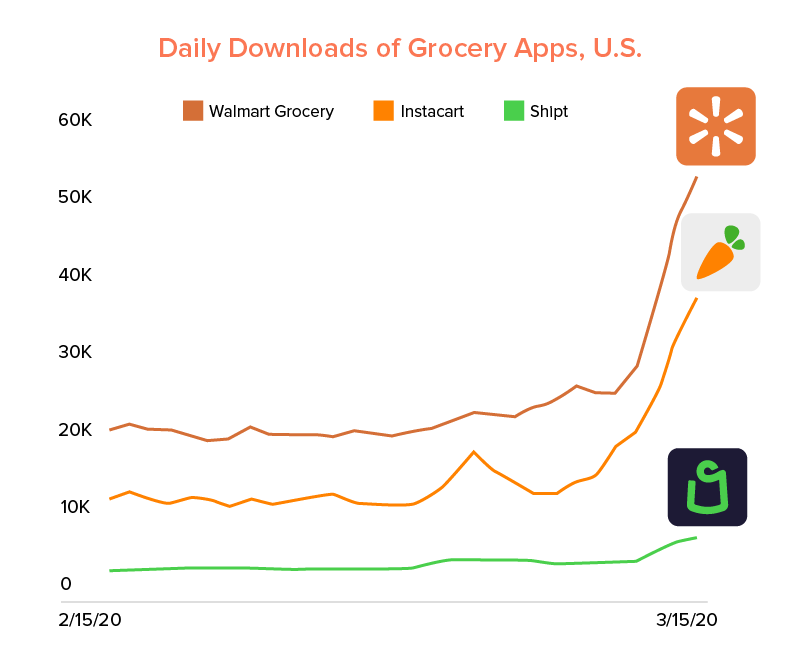
They are purchasing more sanitizers and over the counter medicines from on-demand pharmacy service providers like NowRx. Also, they are using instant messaging, web and teleconferencing tools at a great extent to ensure better remote interactions and relish other benefits while doing their work remotely. In fact, it has been noted that the video-conferencing provider Zoom has had a 78% rise in revenue over the past year and its share rate has uplifted by 67.27% in the first three months of this year.
11. Education
Last but not least, the Education sector is also one of the Coronavirus affected industries.
As per UNESCO, various schools have been shut down in 22 countries and across 3 continents, and about 421 Mn students have been disrupted worldwide. A higher fraction of them, who have been relying on mid-day meals, are now struggling to feed themselves. Whilst, many medical students have been promoted earlier to provide them a source of income to survive this period.
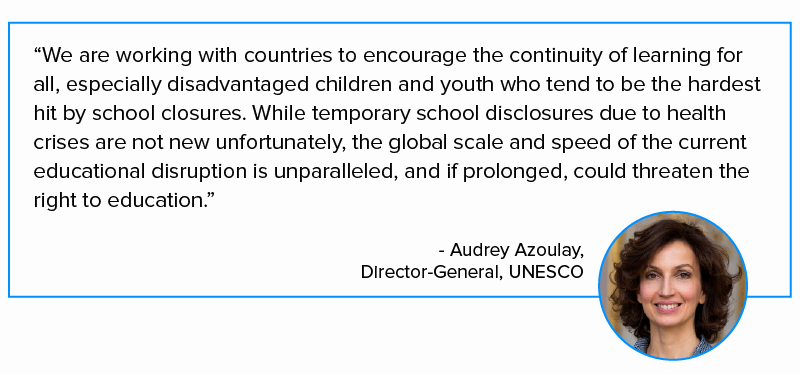
It has also been noted that many educational organizations have been investing their efforts in building and using online learning and broadcasting platforms for studying remotely. In fact, 120 Mn of Chinese students got access to learning materials via live television broadcasts while a large number of students in Hong Kong have started learning at home via interactive apps.
With this, we have taken an overview of what business leaders and consumers think about the increasing impact of coronavirus on various industries. However, we conclude anything about the future of these business verticals, it is important to get acquainted with the outlook of the third pillar of the economy too.
So, let’s look at what investors think about the effect of coronavirus on industries.
What investors say about the coronavirus impact on different industries?
Coronavirus (COVID-19), with no such similarity with epidemics and emergencies the world has witnessed earlier, has made it tough for one to predict when this disease and its impact would end. This uncertainty has made investors look for both short-term and long-term goals/profits.
Investors, now, are paying attention to diversification and rebalancing, stress upon quality growth at economical prices, and incline towards defensive large-cap stocks. Implying, the consequence of the economic slowdown depends on the type of investors business leaders come across to bring their businesses back on track.
In such a scenario, the profitable strategy for entrepreneurs is to come up with unique ideas like using OYO rooms for self-isolation or embrace wider adoption of technology such as that related to home services, entertainment, video conferencing, and meditation.
This has further brought a query in the heads of many – ‘Is embracing technology the right recovery method?’
Something that we will unfold in this article before wrapping up.
Is technology adoption the road to recovery?
While the idea of pursuing strategies like lean manufacturing and outsourcing are helping business leaders cut down the cost associated with supply chain and other processes, technology adoption is being considered as the right companion.
The wide array of technologies have come forward with effective solutions to the challenges of operating traditional business models while preventing people suffering from the effects of coronavirus on industries. A few of which are:-
1. Artificial intelligence
The foremost technology that is enjoying a wider adoption among different businesses is Artificial intelligence.
The technology is not solely automating a majority of mundane and repetitive tasks, but is helping with gathering and analyzing heaps of data in real-time, building effective market strategies, delivering effective communication experience, and more.
2. Mobile Payments
Currently, most of the cities are locked down and people are avoiding cash payments because of fear of coronavirus spread. Digital payment solutions, in this scenario, are letting users pay payments using the power of QR scanning, NFC technologies, and so on instead of cash.
And the best part is that one can send payments across cities and nations via these mobility solutions.
3. AR/VR
Augmented reality (AR) and Virtual reality (VR) is also aiding in scaling up businesses. On one side, it is letting entertainment companies organize live events and award shows in the form of virtual experience. While on the other side, the technology is letting students, medical practitioners, employees and others collaborate in their business space for better data sharing and training, ultimately resulting in higher efficiency and productivity.
4. Blockchain
Another technology that is proving to help companies overcome the existing challenges is Blockchain.
The technology, as a distributed ledger database, is removing middlemen and making the hiring process easier and faster. It is enabling easier, faster, and secure cross-border payments.
Also, blockchain is adding transparency, accountability and security into supply chain management in hospital and other sectors with its smart contract implementation. Besides, blockchain is easing the salary payments process via cryptocurrency.
Additionally, the technology is simplifying the process of fund tracking; making everyone know when and how their donation/investment is being used.
5. Cloud Computing
Cloud computing is another technology that is helping businesses survive the coronavirus effect on industries.
The Cloud-based solutions are empowering people to work from home and maintain the social distancing regulation. They are letting them access data and information from anywhere around the world and offering online collaboration tools to streamline processes.
Also, they are helping with using ample resources and software without putting a strain on their local devices; giving them an escape from the stress of limited resources at home.
6. Geofencing
While the aforementioned technologies are easing the complexities of processes for people, geofencing is helping with keeping a real-time track of individuals during remote business.
The technology during the coronavirus pandemic period is making it easier for organizations to have a timely track of the exact location of the employees, the resources allocated to them for any particular job, the time they spent on any particular location/task, resources unused during the process, and more.
Conclusion
As, as seen in this article, the impact of coronavirus on different industries is adverse; making businesses face unique and significant challenges. And one of the finest ways they have come up with to overcome the coronavirus impact on industries and sectors is using trending technologies.
So, if you too want to withstand this situation and build a prosperous future, consult with the tech experts immediately!






















